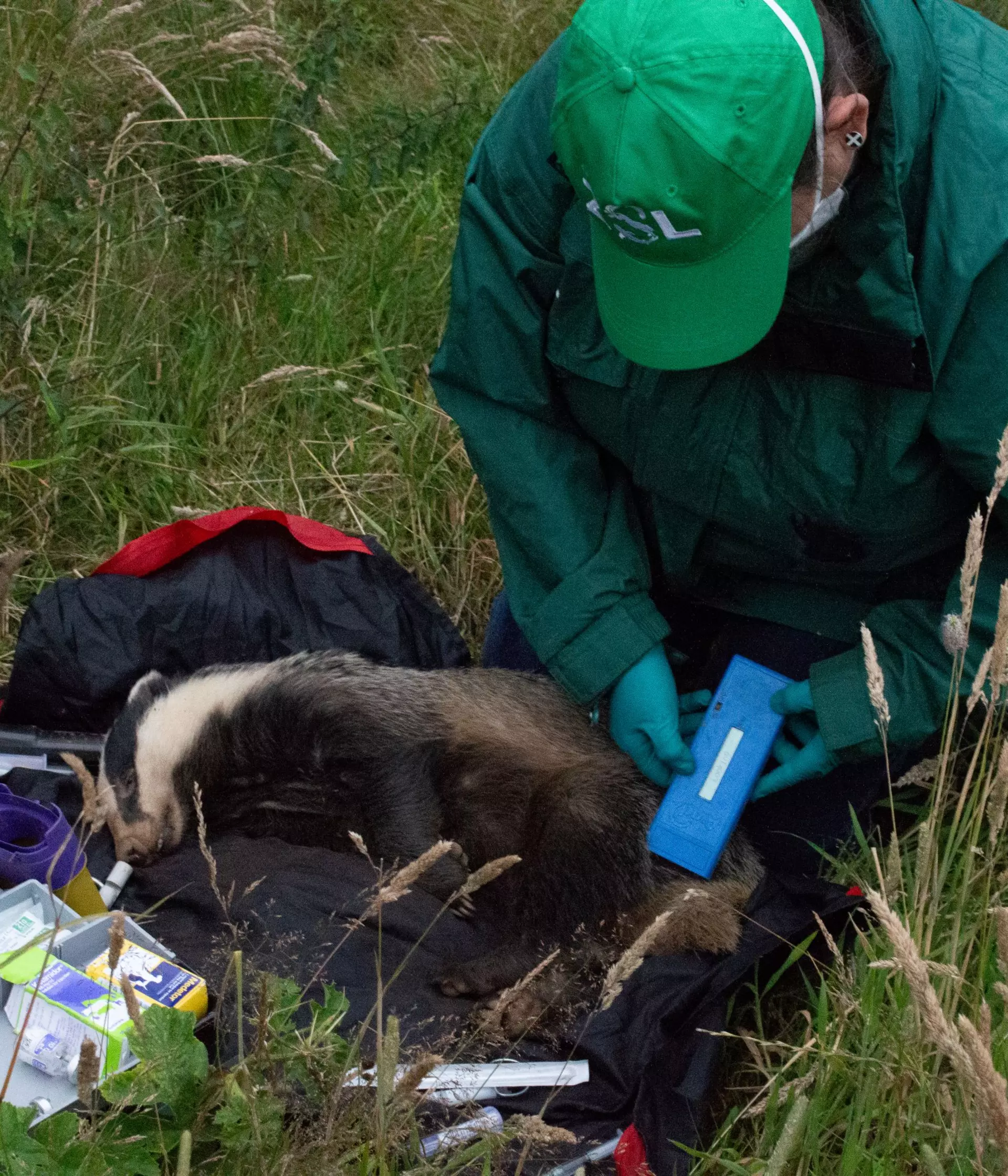Farmer-led badger vaccination could play a vital role in plans to eradicate bovine tuberculosis, highlights a first-of-its-kind project initiated by Cornish farmers and implemented by us, Cornwall Wildlife Trust, and Imperial College London.
A paper published today (6 August 2024) in People and Nature reports how over the course of the four-year pilot vaccination programme – co-managed between farmers, scientists, and conservationists – the percentage of badgers testing positive for bovine tuberculosis (bTB) in the study area dropped from 16% to 0%, while the farmers involved reported increased enthusiasm for badger vaccination as a bTB control tool.
With larger-scale assessments needed to measure how badger vaccination impacts disease rates in cattle, the team behind the study are calling on the government to support further evaluations of community-led badger vaccination.
Professor Rosie Woodroffe, project lead and researcher at ZSL’s Institute of Zoology said: “Bovine tuberculosis can devastate farmers’ livelihoods, and hundreds of thousands of cattle and badgers have been slaughtered for bTB control in recent years. Everyone wants to see this disease eradicated. Our hope is that this work will help to move bTB control into a place where farmers and wildlife groups can work together towards this shared goal.”
Initiated and part-funded by Cornish farmers, the team vaccinated badgers across 12 farms in a 11km2 area, while working with Imperial College London to simultaneously gather data to address the farmers’ questions around the practicality and effectiveness of vaccination. More badgers were vaccinated per km2 than were caught by nearby culls, with separate counts from camera traps suggesting that 74% of local badgers received the vaccine. Blood sampling showed that the proportion of badgers with bTB fell even though overall badger numbers remained high, and interviews with the participating landowners indicated their keenness to continue vaccination beyond the original 4 years.
Keith Truscott, founder of the Mid Cornwall Badger Vaccination Farmers Group and senior author on the report said: “We need a solution to tackle bovine tuberculosis – as a cattle farmer, I’m living with the constant worry that one of our cows might test positive for the disease, so doing nothing is not an option. I sleep better at night knowing that there are people out there working to eradicate the disease through vaccination. I’m proud to be part of this project, and even more so to have instigated it.”
While most bTB incidents in cattle are caused by transmission between herds, transmission from wild badgers plays a role in the persistence of the disease. Badger culls have formed part of the UK government’s bTB policy for many years, although the new government has committed to ending the controversial cull.
Previously, plans to expand badger vaccination have been met with scepticism from farming leaders, concerned that vaccination might reach too few badgers, at too high a cost, making it ineffective. This new paper highlights that vaccination can be delivered in ways which are practical, cost-effective, and acceptable to farmers.
Bovine tuberculosis is caused by the bacterium Mycobacterium bovis, and can affect people, as well as cattle, badgers, and many other mammals. As part of the government’s commitment to eradicate bTB, cattle that test positive must be slaughtered, with restrictions placed on the remaining members of the herd – greatly impacting farmers’ livelihoods.
Cheryl Marriott, Director of Nature and People at Cornwall Wildlife Trust added: “The mid-Cornwall badger vaccination project is a brilliant example of nature conservationists, farmers, and scientists putting their heads together to help fix a problem. We have all learnt a lot and now better understand each other’s points of view, it has been really rewarding on many levels.”
In addition to the work by ZSL and Cornwall Wildlife Trust, the project was made possible through partners, including Imperial College London and Natural England. The paper, which includes three farmers as coauthors, also includes a summary in Cornish, thought to be the first use of this language in scientific literature.
